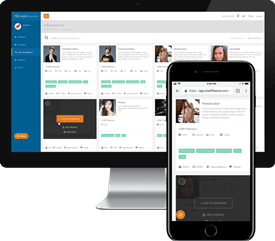Last Updated on July 2, 2020
In the not so distant past, creating digital content was reserved for hobbyists. Today, creating digital content has become mainstream. For many people, content creation is more than a pastime; it’s a viable career netting some of its biggest names millions of dollars every year. Do-it-yourself bloggers, podcasters, YouTubers, Instagram influencers, and other creatives all have the opportunity to claim their share of a content marketing industry worth an estimated $44 billion. How do content creators make money? Take a closer look at some of the revenue possibilities for content creators.
Direct Advertising
Direct advertising is still one of the most common ways that enable content creators to monetize their efforts. Many blogs have clickable ads around their posts. The companies behind these ads pay bloggers for revenue generated from click-throughs and, in some cases, simply the click-throughs. Affiliate programs enable bloggers to easily make money using social media by connecting with companies in their niche and creating advertisements for them. These programs give bloggers a commission for every item sold via the affiliate links in their posts.
Some content creation platforms do the hard work for their members and find advertising for them. For example, YouTube, the world’s most popular video platform, makes inserting ads into its user-created videos easy. Content creators receive payment every time someone views one of the ads in their videos. Google, YouTube’s parent company, claims 45% of the revenue from these ads, leaving 55% for its content creators.
Working With Companies as an Influencer
Content creators who create content to promote products and brands are called influencers. Influencer content includes blog posts about travel in a particular location, sponsored by that location’s tourism group, or Instagram posts revealing a model using a particular makeup or skin care product. Influencers typically work closely with the brands they promote, often for an extended period of time.
Influencers usually receive the services and products they promote for free. They may also receive financial compensation for the posts they make. While content creators aren’t always paid as influencers, average pay rates range from $75 to more than $5,000, depending on the medium and number of followers.
Brands contact some well-known influencers directly. However, many influencers with smaller fan bases connect with brands in their niche through content marketing companies such as Intellifluence.
Syndicating Content
Content creators can syndicate their content to third-party websites for a fee. For example, a music blogger may give larger news websites syndication rights to concert reviews and accompanying photos in exchange for financial compensation. These news websites would reprint the reviews and photographs, with or without their own edits.
Note that not all syndication opportunities are paid. In some cases, third-party websites offer little more than a byline. However, as many websites link back to the original source of syndicated material, some content creators still appreciate this type of syndication. For them, syndication can be a great way to drive traffic to their original digital content, which can lead to more revenue.
Large media outlets are more likely to offer paid syndication opportunities than smaller operations such as blogs or online-exclusive news sites. Content creators should approach the platforms they’re interested in and decide whether they’re happy with the syndication terms.
Creating Premium Content for Subscribers
Sometimes simply generating content can be one of the answers to the question “How do content creators make money?” Many content creators have two or more content tiers: one for the general public and other premium tiers for paying subscribers.
Platforms such as Patreon allow content creators — including podcasters, video creators, and writers — to easily establish premium subscription services. Content creators set their own subscriber perks, often in consultation with their followers. They may include access to premium content that no one else sees, early access to content, and live video chats with the content creator and other subscribers. Subscribers will happily pay extra to support their favorite content creators and enjoy exclusive benefits.
Public Appearances
The world’s most famous content creators have earned a type of rock star status. Similar to famous musicians, they can make big money through public appearances. Popular YouTubers including DanTDM, Jacksepticeye, and Markiplier have toured throughout the United States, Europe, and Australia. In addition to ticket sales, these popular YouTubers also generate revenue from merchandise sold at each show.
Even if content creators don’t have the following they need for a world tour, they may make money through speaking engagements. Social media personalities, podcasters, vloggers, and bloggers regularly take their place alongside other industry experts at conferences. They may also be the keynote speakers at business functions and other events.
Content creation can be a great way to supplement income or gain the financial freedom required to work independently. Many content creators don’t generate the millions of dollars that the most high-profile content creators earn, but with some effort and the right opportunities, their quality content can make money and open the right doors for them.

SallyBot is committed to helping users get the most out of Intellifluence. By helping brands create campaigns, providing unparalleled customer service and offering useful advice, nothing makes SallyBot happier than hearing she is liked… Really, really liked.






